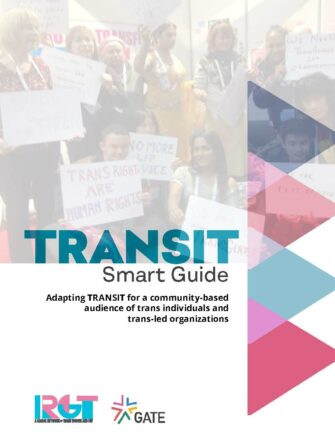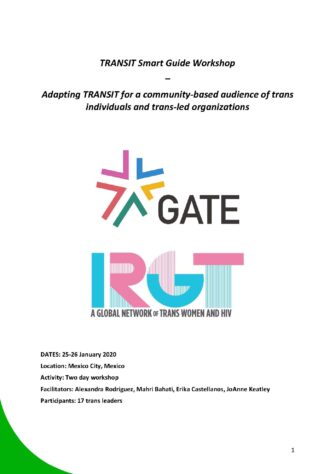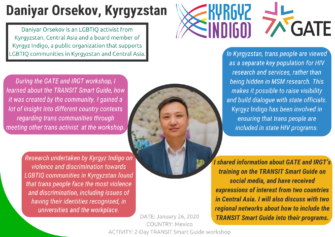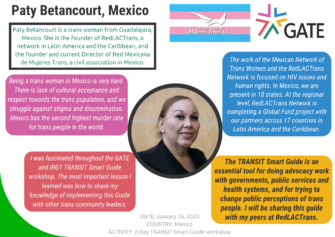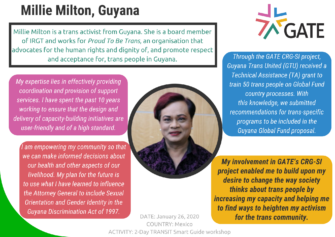Empowering trans communities allows them to take ownership of problems that face their community and come up with unique solutions that will hopefully decrease their vulnerability for HIV as well as address structural issues that perpetuate marginalization, stigma, and discrimination. When we empower communities, we increase their ability for self-determination and the ability to make change in local communities by giving them the power to represent their own interest and act from a place of authority.
What is the TRANSIT?
Implementing Comprehensive HIV and STI Programmes with Transgender People: Practical Guidance for Collaborative Interventions, also known as the TRANS Implementation Tool (TRANSIT) is a tool that was developed for use by public-health officials and managers of HIV and STI programs; NGOs, including community and civil-society organizations; and health workers to enhance the design and delivery of HIV services for transgender (trans) people.
TRANSIT is divided into five chapters based on recommendations from the 2011 World Health Organization (WHO) guidance document Prevention and treatment of HIV and other sexually transmitted infections among men who have sex with men and transgender people and the 2014 WHO Consolidated guidelines on HIV prevention, diagnosis, treatment and care for key populations, which provide guidance and recommendations on HIV and STI interventions and treatment for key populations, including trans people. It can serve as a reference tool for trans-led organizations and offers comprehensive guidance and resources on how to design and implement services that will be accessible and acceptable to trans people, especially trans women who are disproportionately affected by HIV.
What is the TRANSIT Smart Guide?
The TRANSIT Smart Guide was developed as a collaborative effort between Innovative Response Globally for Transgender Women and HIV (IRGT) and Global Action for Trans Equality (GATE) to adapt TRANSIT for a community-based audience of trans individuals and trans-led organizations.
The TRANSIT Smart Guide follows the same structure as TRANSIT and is divided into the following topics:
- Topic 1: Community Empowerment
- Topic 2: Stigma, Discrimination, Violence and Human Rights
- Topic 3: Services
- Topic 4: Service Delivery Approaches
- Topic 5: Programme Management
It highlights content areas in TRANSIT that are of particular interest and importance to the trans community and is intended to be used alongside the full TRANSIT document. For a more in-depth review of the concepts presented in the Smart Guide or to locate additional resources, you can access TRANSIT on the United Nations Population Fund (UNPF) website.
Watch the presentation
Mahri Bahati of IRGT presents an overview of the TRANSIT Smart Guide. This presentation was premiered in the Trans Networking Zone at the Global Village of the AIDS 2020: Virtual conference.






